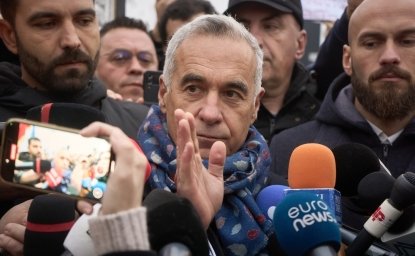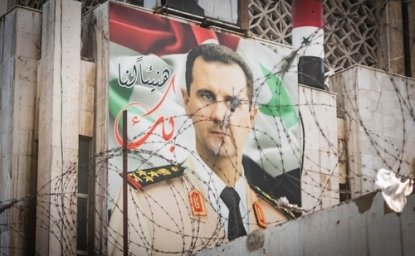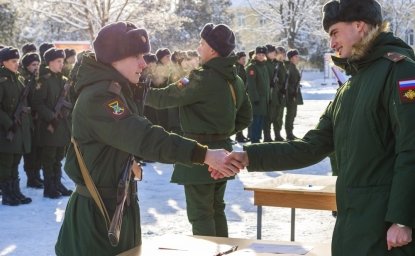
A blog of the Kennan Institute
Since initiating the war in Ukraine, Russia has become a political pariah in the West but has managed to solidify alliances with Iran and North Korea. Russia's influence has also strengthened in Central Asia, where fears of Russian aggression have led to a cautious approach calculated not to antagonize Moscow. Similarly, Russia’s standing in Azerbaijan has improved, with Putin gaining favor by effectively distancing himself from Armenia, Russia’s former ally and Azerbaijan’s regional rival.
Yet the most surprising shift has been in Georgia, where the country’s ruling elite has moved noticeably closer to Russia. In the mid-2000s, Georgia expressed its aspirations to join the European Union. In 2023, it was granted the status of a candidate for the EU membership. The country has enjoyed a visa-free regime with the Schengen Zone for seven years, and since 2008 it has worked with NATO to rebuild its military infrastructure.
The Sentiments of Georgian Citizens
The Western vector of Georgian politics has been clearly supported by Georgian citizens for a decade and a half. In late 2023, 79 percent of respondents in a poll conducted by the National Democratic Institute (NDI) expressed support for Georgia’s accession to the EU. Support for joining NATO also remains strong at 67 percent, though this figure has decreased from a high of 81 percent a decade earlier.
Some decline in support for the Western path is partly attributed to systematic anti-Western propaganda, which the ruling Georgian Dream (GD) party, in power since 2012, has amplified in recent years. The proportion of those advocating for balanced relations with both Russia and the West has increased from 31 percent to 36 percent.
Nevertheless, 73 percent of Georgian citizens continue to support the country’s pro-Western orientation. In contrast, the proportion of respondents who believe Georgia’s foreign policy should be aligned with Russia’s (whether or not it includes positive relations with NATO and the EU) remains below 10 percent. This is unsurprising for a country that experienced a war with Russia in 2008 and lost 20 percent of its territory as a result.
The same NDI poll showed that the majority of Georgian citizens (51–52 percent) believe that the main threats to Georgia's national security come from Russia. Specifically, 27 percent cite the possibility of Russian military aggression; 13 percent point to the occupation of Abkhazia and South Ossetia; and 11 percent highlight Russian propaganda. In another poll, 77 percent of respondents identified Russia as the greatest threat to Georgia’s national security.
Over the past eight years, the proportion of those fully supporting dialogue with Russia has halved, dropping from 65 to 33 percent, with the most significant decline among young people, where support has fallen to 21 percent. Furthermore, three quarters of Georgian citizens believe that Russian aggression against Georgia is ongoing. Given these circumstances, how can Georgia’s leadership continue to draw the country closer to Russia’s orbit?
Democracy Backsliding
The main driver of the rapprochement with Russia has been the policy of Bidzina Ivanishvili, the informal leader of Georgian Dream and an oligarch who made his fortune in Russia in the 1990s and 2000s. Despite his declared disengagement from Russian businesses, in reality Ivanishvili remains closely tied to Russia and thus vulnerable to pressure from the Kremlin. Georgia has benefited from sanctions against Russia: over the past decade, Russia’s share in Georgia’s foreign trade has risen from 4–5 percent to 11–13 percent.
Georgian Dream and the government it controls have been restricting opposition media, bribing voters, abusing administrative resources in elections, and distributing positions in power to friends and associates. Georgian Dream has effectively subordinated the judiciary to the executive brunch.
Their propaganda paints Brussels and Washington as enemies of Georgia, alleging that they seek to open a "second front" against Russia. This narrative skillfully exploits the strong religious sentiments of Georgian citizens (the Eastern Orthodox Church holds significant influence), creating divisions between the younger and older generations and positioning traditional values in opposition to modern views.
Ivanishvili has been a careful and talented student of Putin. The law on foreign agents passed a few months ago is the most visible milestone in the country’s drift toward authoritarian rule. It is not only copied from the Russian law but surpasses it in its rigor, requiring full disclosure of the personal details of all contractors and employees of NGOs receiving foreign funding. Another copycat move is a homophobic law banning “LGBTQ+ propaganda” that was passed in September.
Georgia is a small country (3.7 million people) and a small economy (its GDP in 2023 was $31 billion). Funding from European and American foundations is crucial for its nongovernment sector, accounting for up to 95 percent of all Georgian NGOs’ funding. The opposition media in Georgia are similarly reliant on foreign funding. Local businesses cannot afford to openly fund media and NGOs that criticize the authorities. Following Putin’s example, Ivanishvili has set up a presidential fund to finance pro-government NGOs, aiming to offset the loss of foreign funding.
Almost all political parties, with the exception of two—the ruling Georgian Dream and the United National Movement (UNM)—lack broad support. A majority of voters (62 percent in the NDI survey) say that no party represents their interests, including 69 percent of young people. This leaves NGOs the primary critics of the Ivanishvili regime, of which the government is well aware.
Ivanishvili’s plan is quite clear. He portrays the West, the Georgian opposition, and NGOs as part of a globally unified “war party,” willing to sacrifice Georgia in order to deliver another blow to Russia. If Ivanishvili wins the elections, he will have the opportunity to eliminate both the opposition and the civil society organizations associated with it by labeling them “enemies of Georgia.” This would enable him to consolidate power further, leaving no viable alternative to his rule.
Decisive Elections
Georgia has a parliamentary system, but the parties there are extremely weak. According to various polls, Georgian Dream will get around 20–30 percent of the vote. The largest opposition party, the United National Movement (UNM), has around 10–15 percent supporters. But it has a huge negative rating (40 percent against 29 percent for Georgian Dream) because of the unpopularity of the party’s founder, Mikhail Saakashvili. Small opposition parties garner only 1–4 percent each.
Georgian society is polarized. A third of those polled are convinced that the political camp opposite to them is not working in the interests of the country. The polarization is most pronounced among the elderly, those living in villages, and those employed in the public sector. These are the groups Georgian Dream is trying to mobilize by putting it out that the democratic camp wants war and the rejection of traditional Georgian values. In many ways it succeeds. In addition, the ruling party can take credit for the rapid growth of the economy.
The only hope for the pro-democracy camp lies in recent attempts to unite the opposition under the aegis of Georgian president Salome Zourabichvili. However, this project is far from complete and may not succeed enough to compete with GD. According to the latest polls, 30-35 percent of respondents will vote for the GD, while 25-30 percent will vote for various opposition coalitions.
In September, Ivanishvili, who returned to politics to help his party win the elections, made an unexpected move. He told the Georgian public that the country should apologize for the war in South Ossetia. He promised the opposition UNM a "Georgian Nuremberg" for starting the war. This position is extremely unpopular in Georgia.
On the other hand, this position may resonate with the supporters of Georgian Dream, who hope for a rapprochement with Russia and that this will force Abkhazia and South Ossetia, as its satellites, to forget the past and enter into some kind of alliance with Georgia. But it will be an alliance under the aegis of Russia, in which Georgia will not be able to pursue an independent foreign policy.
“Actions by the Georgian government, recent anti-democratic actions, disinformation about the United States and the West—none of that helps Georgia or the Georgian people,” the U.S. ambassador Robin Dunnigan recently said in a statement. The EU is considering suspending visa-free travel for Georgians, which would be a major blow to the country. There are about one million Georgians living abroad, most of them in the EU.
Possible Future Scenarios
The outcome of the Georgian elections is highly unpredictable. The opposition may succeed in winning more votes than the ruling party. However, should this happen, it is likely to lead to increased irregularities during the vote count, and popular unrest is almost inevitable if the opposition refuses to accept the results. As demonstrated during the spring 2024 protests against the law on foreign agents, the Georgian police are now prepared to act aggressively.
Georgian politics is notoriously full of surprises, with both voters and politicians often acting impulsively. Yet at this moment, only two possible scenarios remain: either Georgian Dream will solidify its power, suppress the opposition after the elections, and make Georgia even more subservient to Russia, or Georgian society will somehow manage to reverse this trend and reclaim its autonomy.
The opinions expressed in this article are those solely of the author and do not reflect the views of the Kennan Institute.
Author

Journalist and public educator; author of Telegram channel EventsAndTexts

Kennan Institute
The Kennan Institute is the premier US center for advanced research on Eurasia and the oldest and largest regional program at the Woodrow Wilson International Center for Scholars. The Kennan Institute is committed to improving American understanding of Russia, Ukraine, Central Asia, the South Caucasus, and the surrounding region though research and exchange. Read more

Explore More in The Russia File
Browse The Russia File
In Search of Russia’s Digital Trace in Romania’s Political Crisis

With Syria’s Collapse Russia’s Regional Power Play Disintegrates

Putin's Strategy Tests Europe's Defense Limits

